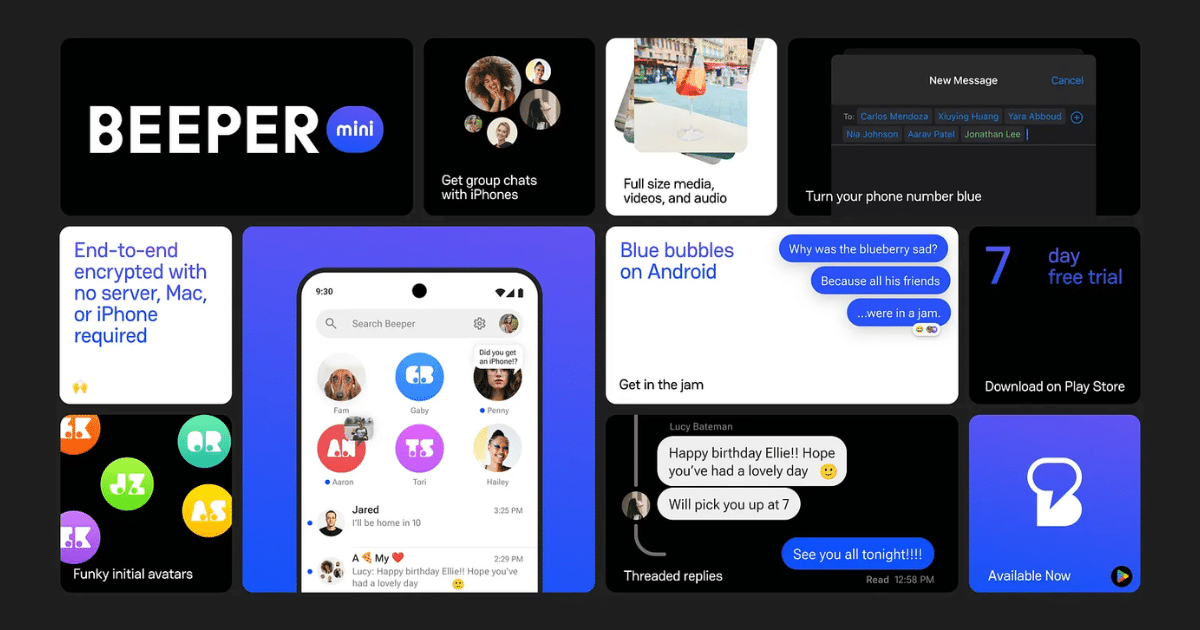Beeper Mini, the revolutionary app that offers iMessage on Android, is facing a critical roadblock. Many users were abruptly cut off from its service on Sunday. This was likely a direct result of Apple’s ongoing efforts to restrict cross-platform messaging functionality.
To combat Apple’s scrutiny, the company has shifted to a new method requiring individual users to generate their own registration data using a Mac. This registration data was previously provided by Beeper Mini’s servers.

Apple cracks Beeper Mini’s bridge that provided users with “registration data” from its Mac servers
Beeper Mini’s iMessage integration initially faced hurdles as Apple continuously blocked the service. As of Sunday, 60% of Beeper users could not send or receive iMessages, highlighting the impact of Apple’s stringent measures
Beeper’s initial solution for Android iMessage relied on sending “registration data” from their own Mac servers to authenticate connections. This data essentially acted as an authentication token, confirming a Mac was available behind the scenes. However, Apple quickly identified this vulnerability due to the shared nature of the data among thousands of Beeper users.
When you connect iMessage on Beeper, we need to send identification information called ‘registration data’ from a real Mac. We have, up until now, we been using our own fleet of Mac servers to provide this. Unfortunately, this has proven to be an easy target for Apple because thousands of Beeper users were using the same registration data.
To address this, Beeper shifted the burden to users, introducing a new workaround where they must use a Mac to generate their unique registration data. Beeper Cloud for macOS will facilitate this process and emphasize the need for periodic data regeneration for continued functionality

Beeper reassures users about the privacy of the registration data, stating that it’s only used to indicate Mac availability during registration. The Mac itself does not gain access to users’ accounts or messages. In a move toward transparency, Beeper is open-sourcing its iMessage bridge and the Mac code responsible for generating registration data, providing a self-host alternative.
Registration data is used only to indicate that a Mac is available during registration. The Mac in no way is given any access to your account, or your messages.
We’ll also be open sourcing our full iMessage bridge, as well as the Mac code that generates registration data. If you prefer, you can choose to self-host or inspect our code.
Beeper Mini, which initially promised seamless iMessage integration on Android, now faces skepticism due to the more complex setup. Some users express frustration, considering the new method an inefficient workaround that places more responsibility on them. However, others appreciate Beeper’s persistence, acknowledging it as a temporary solution to integrate various messaging apps.
While Beeper Mini’s new workaround enables iMessage on Android, it raises concerns about the sustainability of the workaround. Apple’s history of actively countering Beeper’s attempts suggests that future updates may impose even stricter conditions, potentially forcing users to abandon the service entirely.
Read Beeper’s full statement here.